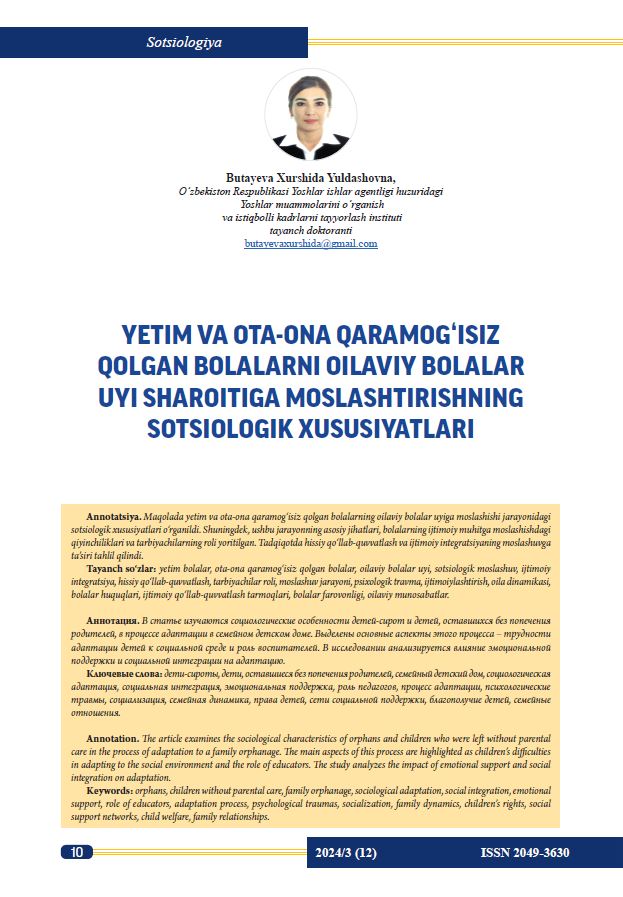Sociological features of the adaptation of orphans and children left without parental care to the conditions of a family orphanage
DOI:
https://doi.org/10.65185/mojgo.vi.88Abstract
The article examines the sociological characteristics of orphans and children who were left without parental care in the process of adaptation to a family orphanage. The main aspects of this process are highlighted as children’s difficulties in adapting to the social environment and the role of educators. The study analyzes the impact of emotional support and social integration on adaptation
Keywords:
child welfare children’s rights orphansReferences
Bowlby J. Attachment and Loss. – New York: Basic Books, 1969. pp. 152-174.
Abdukarimov Sh. Pedagogika nazariyasi va amaliyoti. – Toshkent: Oʻqituvchi, 1997. – B. 223-241.
Vigotsky L.S. Mind in Society: The Development of Higher Psychological Processes. – Cambridge: Harvard University Press, 1978. pp. 94-120.
Omonov R. Oila psixologiyasi. – Toshkent: Oʻzbekiston, 2005. – b. 112-129.
Hasanov A. Ijtimoiy psixologiya. – Toshkent: Fan, 2010. – B. 45-67.
Maslow A.H. Motivation and Personality. – New York: Harper Row, 1954. – pp. 201-219.
Bronfenbrenner U. The Ecology of Human Development. – Cambridge: Harvard University Press, 1979. pp. 67-89.
Uzoqov N. Bola tarbiyasining psixologik asoslari. – Samarqand: SamDU, 2003. – B. 130-147.
Макаренко А.С. Педагогическая поэма. – Москва: Просвещение, 1988. – С. 56-78.
Erikson E.H. Identity: Youth and Crisis. – New York: Norton Company, 1968. pp. 85-102.

Downloads
Published
How to Cite
License
Copyright (c) 2025 Butayeva Xurshida Yuldashovna

This work is licensed under a Creative Commons Attribution 4.0 International License.









